There are two types of travelers in this world: the ones who do research on their future destinations, however meager their research might be, and those who just purchase the plane ticket and go to a foreign country the next day.
Needless to say, the ones that fall into the second category expose themselves to a lot more risks than those who actually know what the situation is in the countries that they want to visit.
Africa has a bad reputation among tourists for multiple reasons which range from medical to political. Now, if you want to go to Niger, you should think twice before doing so and we’ll let you know why in the remainder of this brief – but concise – guide.
Our Niger safety guide will contain Niger safety travel tips for those who have never been to this country. Although we will give an answer to the question “Is Niger safe to visit?” you will undoubtedly be able to answer it yourself.
Highest Risks You Expose Yourself to When Visiting Niger

Overall Risks in Niger: HIGH
Niger is currently one of the most dangerous countries in Africa and the government has issued alerts for tourists and recommended that if they do decide to travel there, they should stick mainly to the capital, as the rest of the country is extremely unsafe.
According to the 2017 Crime & Safety Report, criminality has been on the rise in Niger. Armed robberies, pickpocketing, and other petty crimes, as well as carjacking and kidnappings, are more frequent than they used to be in the previous years.
So, a preliminary answer to “How safe is Nigeria for tourists?”, informed by what we’ve gathered until now, is quite bleak. Nigeria is not a safe country. If you take a look at the crime reports, you’ll see that terrorism has increased too and that pretty much all governments started to warn tourists against visiting this country.
Pickpocketing and Theft Risks in Niger: HIGH
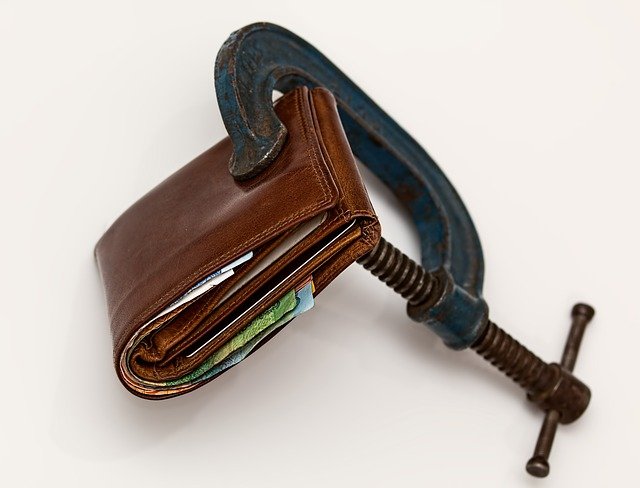
Pickpocketing is extremely common in Nigeria, especially in larger cities. Thieves take advantage of the crowds of tourists and can get away unbelievably easily. On one hand, that’s due to the poor response of the police. On the other hand, it’s due to the thieves’ skills, perfected throughout the years.
Thieves tend to operate at night and will not be ashamed to assault people in order to get what they want. Sadly, this has become a normal practice in Niger and this, among other things, accounts for the fact that the entire country of Niger is under a red traveling code.
The main touristic points are squirming with petty criminals. The National Museum, for instance, is a well-known hub for common robberies which occur both in broad daylight and at night.
- How to avoid pickpocketing and theft in Niger?
Don’t walk alone, especially during the night, and leave your valuables at the hotel when you want to visit another tourist attraction. If you want to take pictures, you should consider relying on your phone's camera.
Be extremely careful and aware of your surroundings in populated areas, such as the main touristic points, markets, official buildings, and so on, as petty thieves will most likely be around the corner, ready to take advantage of tourists. You should not walk alone through large crowds, especially if you are carrying a lot of your valuables with you.
As mentioned before, you should bring only the essentials with you and leave the most important valuables in your hotel room. If you are wearing a backpack or have a purse in which you store your wallet, phone, and so on, we strongly recommend you to keep it in front of you, rather than on your sides or on your back - this way, if someone attempts to grab it or to sneak their hands in it, you will be able to easily see them and fend for yourself.
Naturally, stay away from any areas that look even remotely dangerous - in this respect, we refer to shady alleys, poorly lit streets/ neighborhoods, the city slums, as well as the outskirts of the city you are accommodated in.
Scamming Risk in Niger: HIGH
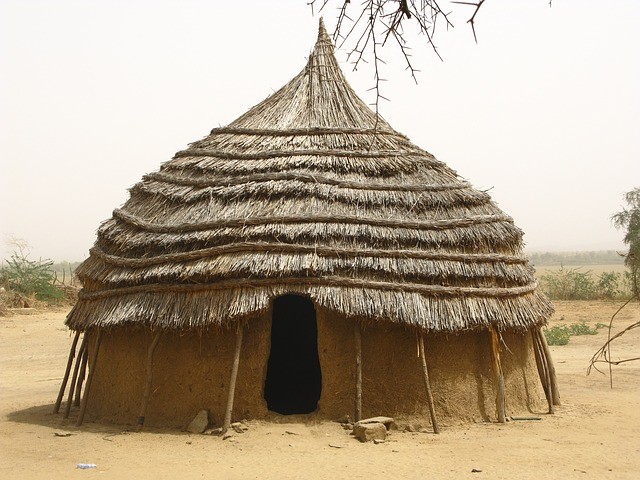
The piracy and the bootlegging of goods are common things in Niger. Keep in mind that if you buy something there that’s been pirated, you might face a pretty large fine upon returning to your own country.
Refrain from buying things from street vendors, especially if the prices are too good to be true. Getting a taxi fare can be a potentially financially ruining thing to do, as drivers have a habit of overcharging foreigners.
You should be familiar with the fact that Niger is called the “Scamming capital of the world”. Did you ever receive an e-mail from the daughter/son of some illustrious prince? That’s right, that kind of e-mail originates from Niger.
- How to avoid getting scammed in Niger?
As mentioned before, even if you are in search of fancy souvenirs or such, it is recommended that you avoid buying the first thing you come across on the street. It's in your best interest to avoid buying things from street vendors and such, as the goods they are selling might be pirated. Instead, rely on branded shops, so to say, and make sure that everything you buy comes with a receipt.
Before entering a taxi, it would be best if you agree upon a fare with the taxi driver so that they don't have the opportunity to overcharge you at the end of your trip. Make sure to familiarize yourself with the local currency so that you know exactly how much people are asking for a certain item or service.
It is best to use only taxis from reputed companies and to avoid those drivers that claim that their meter is broken and so on. Obviously, do not share your taxi with any locals/ strangers.
As a last tip, we recommend you avoid anyone that approaches you or tries too hard to distract you or draw your attention. They are quite likely to scam you if you let your guard down - if someone seems too clingy, so to say, it is better to just excuse yourself and leave.
Kidnapping Risk in Niger: HIGH

How safe is Niger for tourists from this point of view? In a nutshell, it’s possibly one of the most extreme countries you can go to. We’ve talked about the governments have issued all sorts of alerts for Niger: this is at the top of the list.
Kidnapping is a common practice even in Niamey. In the other cities, the risk is so great that all tourists, regardless of the countries they come from, are advised not to go to Niger at all.
Expats have been kidnapped for ransom, which is the primary reason for kidnapping in Niger. Do not travel at night, anywhere. Also, it should go without saying that traveling to Niger alone is absolutely forbidden.
- How to avoid getting kidnapped in Niger?
As mentioned, you should not be traveling to Niger all alone. Moreover, you should not put your trust and safety in any local guide that might accompany you, even if they are associated with a reputed travel company. You should always have someone close to you, that you can trust, in case something happens.
This being said, we strongly recommend you travel with your close friends or members of your family if you plan a trip to Niger. Now, when it comes to traveling during the night, you should refrain from doing so, even if you are accompanied.
In most cases of ransom kidnapping, there are more than just a couple of criminals involved in the case - to better put it, a criminal group selects their targets and then proceeds to kidnap tourists/ locals.
Avoid any shady alleys, the city slums, as well as the city outskirts. Be careful in remote areas - areas which you should clearly avoid, especially if you are part of a small group. Stick to the tourist designated areas and do not try to explore the surroundings on your own.
Terrorism Risk in Niger: HIGH
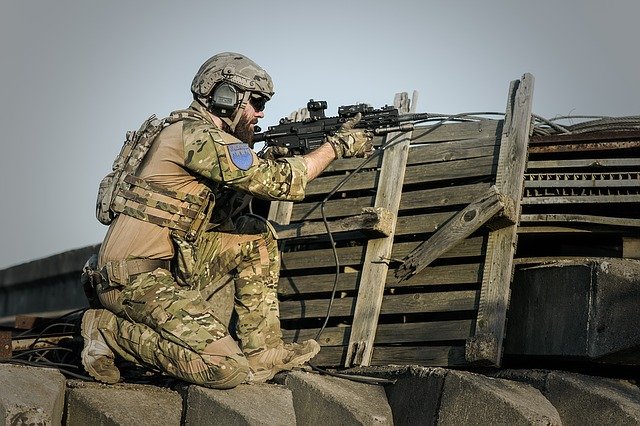
Terrorism in Niger stems from both Al Qaeda, which needs no introduction at this point, and various Nigerian rebellious groups. Political protests are frequent and may erupt at any point. Armed attacks usually occur at the border with Mali but similar cases have been reported all throughout the country.
Tahoua, Abalak, and Agadez are red-lit areas in Niger. In these areas, the threat of terrorism is so high that tourists are not allowed to go there. Governments have specified that only officials can travel to these cities.
Perhaps you can provide the question of is Niger safe to visit on your own. Niger is evidently an extremely hazardous country that has all the things that should make a tourist go to another country instead.
Keep in mind that there are plenty of unexploded landmines throughout Niger, therefore you are highly advised to travel on the highways only.
- How to avoid terrorism in Niger?
First of all, if you plan on leaving the town/ city you are accommodated in, you should consider hiring an experienced guide and even a personal security guard, depending on the locations you want to visit. However, it is still recommended that you refrain from visiting any areas that are not tourist-friendly, so to say.
Given the many dangers, in terms of terrorism, that Niger comes with, it's important that we put our safety in the first place and leave exploration for when we visit other countries. Even when in a major city, you should take at least some basic protection measures in order to avoid being caught up in a terrorist attack.
Namely, limit the time you spend in very crowded places, such as markets and shopping centers, official buildings, as well as places of prayer, since these locations are usually the main targets for terrorist attacks. If you notice anything suspicious, it is better to just flee the area and report what you've seen to the authorities.
Risks for Women Traveling Alone in Niger: HIGH
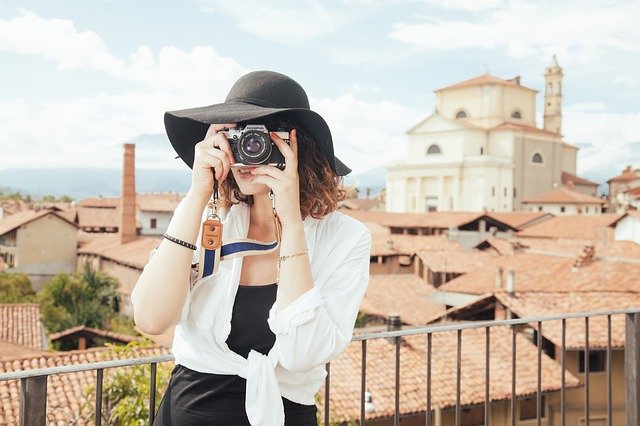
Assaults, rapes, and thefts are a daily business in Niger. Do not travel to Niger alone under any circumstances, no matter how much of a daredevil you think you are. Usually, our Niger safety travel tips would include advice like: call the police if you feel followed, stay at a reputable hotel and travel only by daylight, but since things couldn’t be worse in Niger, we’ll give you only this advice: do not go there alone.
- How to avoid crime as a solo woman traveler in Niger?
Avoid traveling alone - be it during the day or night - at all costs. The last thing you want to happen is to be approached by a group of locals while you are alone and powerless. This is why, when visiting countries like Niger, it is recommended that you join a group of tourists coordinated by a local guide who is working for a reputed travel agency.
You should not travel to Niger thinking that you'll be able to freely explore the country or the city you are accommodated in. The country is not safe for solo travelers of all kinds, be they experienced or rookies, so to say. Avoid all areas that seem even remotely dangerous and do not engage in conversation with any local/ stranger that approaches you.
Also, we recommend you to avoid displaying your valuables while on the street, even if you are accompanied by a group, as petty thieves and criminals alike might try to sneak behind you, among the group of tourists, and snatch your items. Keep your wallet close to you, preferably in an inner pocket, and don't walk with your phone in your hands - unless you want to lose it.
Rape Risk in Niger: MEDIUM
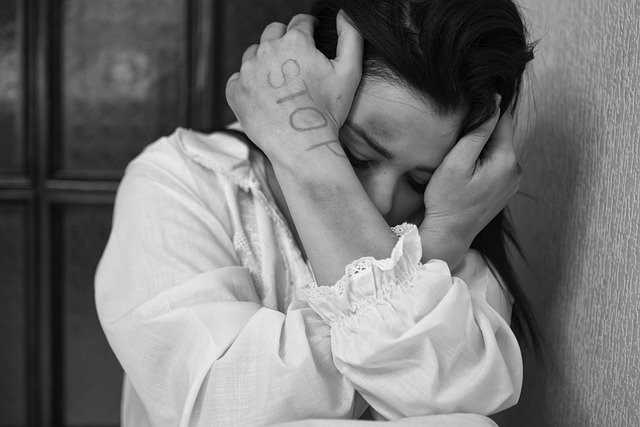
Is Niger safe for solo women travelers? Well, since it’s not safe for anyone unless traveling in a convoy, the answer is “No”, Niger is not safe for lone women travelers. Africa is extremely known for its rape culture and Niger is not an exception when it comes to frequent assaults on women.
To make facts even worse, child trafficking is very common in Nigeria. Rape and trafficking kind of go hand in hand in Africa. Women are not advised to travel alone to Nigeria. They better not travel there at all.
While it is true that local women are more targeted in rape cases than foreign ones, this is no assurance that you’ll be completely safe and sound. Please think very well before you decide to go to Niger alone. Pretty much all agencies will make you reconsider, anyway.
- How to avoid getting raped in Niger?
Even though criminals are most likely to target local women - especially in locations such as villages and remote areas -, you can't completely rule out such risk. In order to avoid getting raped while traveling through Niger, it is recommended that you get familiar with the local laws and customs, as well as with the common dress code, so to speak.
In short, you wouldn't want to draw more attention to yourself than needed. You might want to avoid the casual outfit you'd wear back home and opt for something either less provocative or simpler. Once again, you should not be walking alone on the street, especially during the night.
Risk for People Traveling With Children in Niger: MEDIUM
People are prohibited from traveling to certain areas of Niger. If they plan on traveling there with their children, their vacation is out of the question. Child trafficking is thriving there and you’re better safe than sorry.
Africa, in general, is a place that you should keep your children out of. There are plenty of other countries where you could take your children with you, and those in Africa are not on the list.
Moreover, Niger, like most African countries, has a very faulty healthcare system. If your kids fall ill, you might need to travel hundreds of miles to the closest hospital. The road conditions leave a great deal to be desired, as well.
- How to avoid unwanted scenarios?
Given that child trafficking and kidnapping are two of Niger's risks that you expose yourself - as well as your children - to, it is recommended that you choose another holiday destination if you plan on traveling with your children.
However, if you want to visit Niger, then keep in mind that you'll have to keep an eye on the little ones at all times so that they don't run into any kind of trouble or danger. You should not be traveling alone with your children and, instead, have either your friends or relatives accompany you. There must be someone looking after them at all times!
Natural Disaster Risks in Niger: MEDIUM
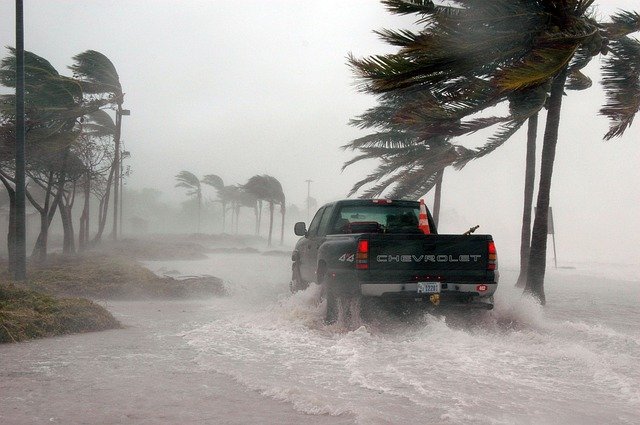
Niger is known for frequent flash floods. In 2017, over 50 people died after heavy rains. Floods affect the capital of Niamey, as well, not only the isolated rural areas where you’d expect to see floods taking the huge toll they’re usually known for.
Storms and heavy rains, therefore, should be cause for concern. Make sure that the weather will be nice if you plan on going to Niger.
Transportation Risks in Niger: HIGH
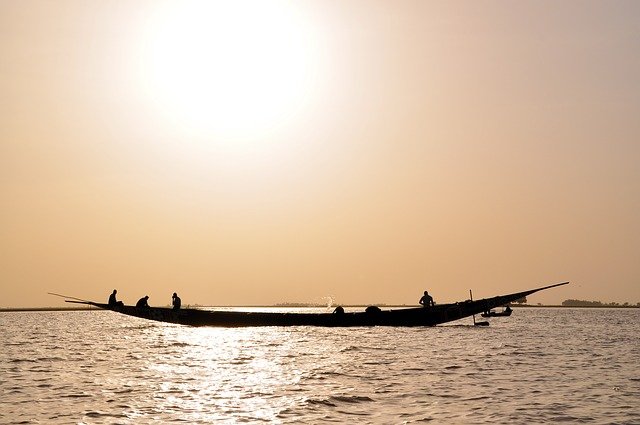
Travel conditions are overall poor and difficult in Niger. Moreover, when traveling outside of the urban areas, there are plenty of security risks that you also have to take into account, besides road conditions and such. Most governments recommend that tourists avoid traveling between cities during the night at all costs.
If you plan on leaving the city you are accommodated in and visiting any remote or desert areas, you should consider hiring a local travel agent/ guide from a reputed travel agency. You should do this not only to ensure your safety but also because the travel guides can arrange you with all the permits you may need during your trip and they'll also deal with leaving your itinerary details with the local authorities.
When it comes to the driving standards, Niger's main roads are overall good, so to speak, but some of them may present potholes. The streets also come with little to no lighting and most vehicles for hire - as well as those driven by locals - are usually poorly lit.
In terms of public transport, there are long-distance buses that travel on the routes between Niamey and the other large towns of the country, but they are known as prone to mechanical failure.
Moreover, there are reports of a couple of incidents in which criminals have carried out attacks on public transport vehicles in order to rob the passengers. The same situation applies to taxis - they are in poor mechanical condition and passengers are prone to be robbed or kidnapped.
While traveling through Niger, it is recommended that you rely only on certain types of transport. Namely, it would be better for you to drive a vehicle for rent rather than have someone drive you somewhere. However, if you do so, you have to be aware of the many road risks the country comes with, including the unexploded landmines.
The other type of transport would be the one provided to you by a reputed travel agency, driven by an experienced guide/ driver and in the company of fellow travelers. Nevertheless, you have to be extremely cautious and vigilant no matter the type of transport you rely on.
Night-Clubs, Pubs, and Bar Risks in Niger: HIGH
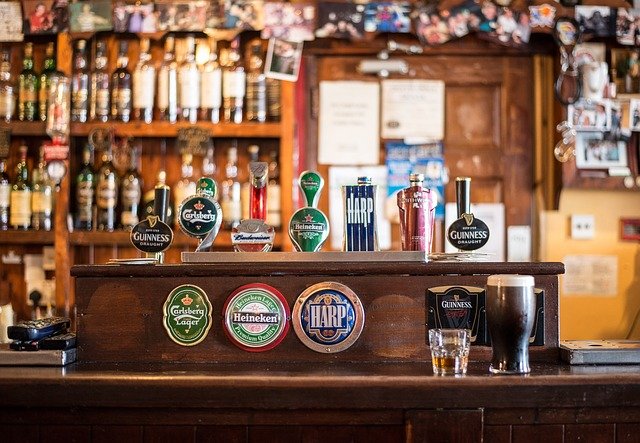
Given the fact that the main type of incident that most foreign nationals report to the authorities is theft, we can expect that most of these incidents occur in or near nightclubs, pubs, or bars. It goes without saying that you should avoid visiting any of the aforementioned locations, as Niger is not the right country for you to have a wild night, so to say.
Moreover, we can expect most of the nightclubs, pubs, and bars to be in a rather poor condition and not able to accommodate foreigners. However, if you still want to relax after a long day of traveling, then we would recommend you to visit the pubs/ bars located within your accommodation and not the ones located throughout the city.
You would have to either walk to their location on relying on a taxi service to get there. Both options come with risks, especially for the lone traveler or for a small group of tourists. Furthermore, if you visit the club within your accommodation, you can expect to find more travelers like you there and fewer locals.
As you have seen so far throughout this article, Niger comes with many risks, most of which you expose yourself to if you decide to visit a nightclub, pub, or bar. Therefore, we strongly recommend you reconsider your decision of going to a bar and having a drink.
Health Risks in Niger
You would have to be very careful, in terms of health, when traveling to Niger. The medical facilities here are in poor condition, even in the country's capital, Niamey. If you are in need of emergency medical treatment, you will most likely have to be evacuated to Europe.
When it comes to health risks, be aware of the fact that 0.8% of the adult population living in Niger is HIV infected - specifically, around 53,000 adults that are aged 15 or over. In this respect, it is recommended that you take the necessary precautions in order to avoid and prevent being exposed to both HIV and AIDS.
As always, we recommend you make sure that you travel with proper travel health insurance and with enough funds to cover the costs of any treatment, medicine, or emergency evacuation that you might be subject to.
List of Vaccines You Need in Niger
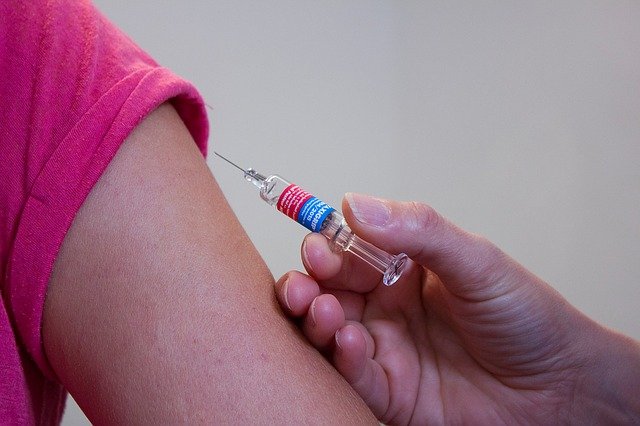
The following vaccines are required for travelers to Niger:
- Hepatitis A and B
- Rabies
- Influenza
- Meningitis
- Yellow fever
- Cholera
- Typhoid fever
- Polio
Keep an eye on the news to make yourself familiar with the situation in Niger. Africa has its fair share of endemics and you certainly don’t want to find yourself in the middle of an ongoing one.
If extreme health alerts are issued, you will not be allowed to travel to the areas where the endemics have been reported.
Most Dangerous Areas in Niger
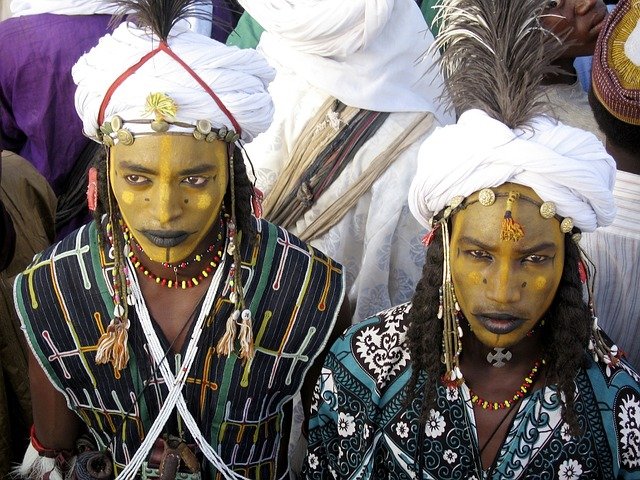
- North of the City of Abalak;
- The Province of Agadez;
- The areas north of the city of Tahoua of the Tahoua province;
- Within 40km of the border with Nigeria in Zinder, Diffa, and Maradi provinces
- the Parc du W, as well as the Tamou and Dosso hunting zones.
Concluding Remarks: Is Niger Safe to Visit?
We wish that our Niger safety guide had a better conclusion, but we need to be realistic. Niger is currently a manifold threat for tourists: the risk of terrorism is high and it keeps on increasing by the year, scamming and theft are common practices and women are not safe at all.
Again, we’d like to mention that many governments won’t allow tourists to go to Niger as of now. Go on the website of government to get the latest news and keep yourself posted on the situation.
We hope that you’ve found our Niger safety guide helpful and that you’ll stay away from Niger until it’s safe to go there again.


